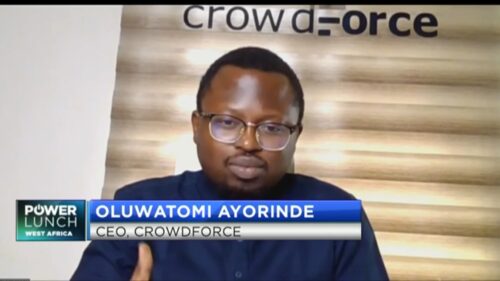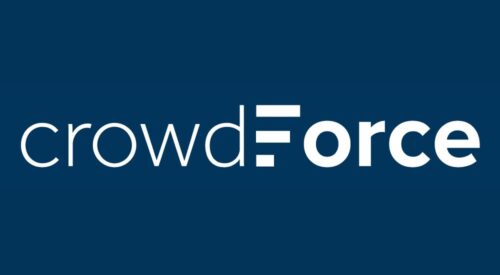
In Nigeria, access to basic banking services remains a significant challenge. The country averages just 4.8 bank branches and 19 ATMs per 100,000 adults, far below the global averages of 13 branches and 40 ATMs. Additionally, less than a third of Nigerian adults live within a kilometer of a bank branch or ATM. This disparity has paved the way for agency banking, a branchless model that relies on local agents to extend financial services to underserved communities.
Among the players addressing this gap is CrowdForce, an Abuja-based company that recently raised $3.6 million in pre-Series A funding. The funding round, led by Aruwa Capital Management with participation from HAVAÍC and AAIC, will support the company’s expansion of its agent network, geographic reach, and marketing efforts. CrowdForce aims to triple its active agent network from 7,000 to more than 21,000 within a year.
The Evolution of CrowdForce
Founded in 2015 by Oluwatomi and Damilola Ayorinde, the company initially operated as MobileForms, a data collection agent network. The platform provided businesses and organizations with reliable offline data from rural and semi-urban areas.
The company’s turning point came in 2018 when it partnered with the Nigerian government for the TraderMoni program, a small loan initiative targeting micro traders. MobileForms conducted KYC registrations for 4.5 million traders but faced challenges in disbursing funds due to many participants being unbanked or living far from bank branches.Recognizing this challenge as an opportunity, MobileForms rebranded as CrowdForce, shifting its focus to creating a financial services distribution network. Its goal was to transform local merchants into mobile bank branches capable of reaching underserved communities.

Expanding Access with PayForce
CrowdForce’s flagship product, PayForce, enables merchants to offer ATM services, fund transfers, and bill payments using a POS-enabled system. These merchants act as agents, serving areas where traditional banks are absent and cash demand is high. In return, agents benefit from an additional revenue stream and tools to manage their cash flow.
However, liquidity issues—when agents run out of cash—can disrupt service and erode customer trust. CrowdForce addresses this by partnering with brick-and-mortar businesses, such as gas stations, to provide cash float services. These businesses, which typically handle large amounts of cash daily, serve as mobile bank branches.
“We’ve turned gas stations into mobile ATMs that can replenish cash for agents and customers alike,” explained CEO Oluwatomi Ayorinde. This approach minimizes reliance on traditional bank branches and enhances liquidity in underserved areas.
In addition to gas stations, CrowdForce partners with pharmacies and reseller networks, leveraging a broad distribution network to deliver financial services. Through partnerships with 19,000 fuel stations, 6,000 pharmacies, and 20,000 resellers, CrowdForce claims to manage over ₦1.7 trillion in liquidity.
Transforming Financial Inclusion
Since 2020, CrowdForce has achieved cash-positive operations, growing 25% month-on-month and serving 1.9 million unique customers across 25 Nigerian states. The company charges a 0.6% commission on transactions processed through its network.With the new funding, CrowdForce plans to deploy additional POS terminals over the next 12 to 18 months, aiming to make financial services accessible within one kilometer—or 15 minutes—of all Nigerians.
“We see significant value in the product as it solves real problems by providing critical financial services in rural areas overlooked by traditional financial institutions,” said Adesuwa Okunbo Rhodes, founder and managing partner at Aruwa Capital.
CrowdForce’s innovative approach to financial distribution highlights the potential of agent banking to close the accessibility gap and drive financial inclusion across Nigeria.



